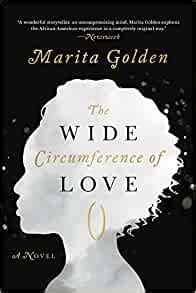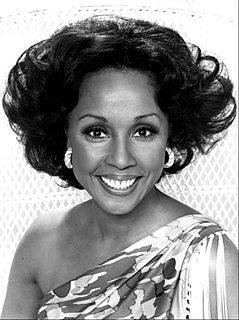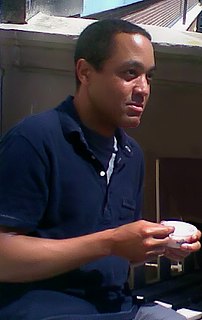A Quote by Studs Terkel
In order for us, black and white, to disenthrall ourselves from the harshest slavemaster, racism, we must disinter our buried history.... We are all the Pilgrim, setting out on this journey.
Related Quotes
We black women must forgive black men for not protecting us against slavery, racism, white men, our confusion, their doubts. And black men must forgive black women for our own sometimes dubious choices, divided loyalties, and lack of belief in their possibilities. Only when our sons and our daughters know that forgiveness is real, existent, and that those who love them practice it, can they form bonds as men and women that really can save and change our community.
I suppose our lives need to be more integrated. We have white communities and black communities and white country clubs and black country clubs. It's very important when we integrate ourselves, and it helps us to have a better understanding of the world, to people all over the world and this is the time in history that we have become very aware of how important that is, so I think it's just really-we have to know each other and work together and play together in order to write about each other.
But again and again, we should reflect back to the darkness of the cocoon. In order to inspire ourselves forward, we must look back to see the contrast with the place we came from. You see, we cannot reject the world of the cocoon - which out which we may create a new cocoon. When we see the suffering that occured in the old cocoon, that inspires us to go forward in our journey of warriorship. It is a journey that is unfolding within us.
There is not a history of black intellectuals being allied with dominant forces to hold white people in social and cultural subordination for a few centuries. Second, the "our" of black folk has always been far more inclusive that the "our" of white folk. For instance, there would have hardly been a need for "black" churches if "white" churches had meant their "our" for everybody - and not just white folk. But "our" black churches have always been open to all who would join. The same with white society at every level.
We have to build our own power. We have to win every single political office we can, where we have a majority of black people... The question for black people is not, when is the white man going to give us our rights, or when is he going to give us good education for our children, or when is he going to give us jobs-if the white man gives you anything-just remember when he gets ready he will take it right back. We have to take for ourselves.
He[Michael Jackson] had a joy in being alive. There was a joy you felt of him on the stage and making us not just feel good but pushing us against ourselves with the "Man in the Mirror," looking at ourselves critically, "Black or White," what does it mean to get caught in a color as opposed to a rich history and culture?
I see racism as institutional: the rules are different for me because I'm black. It's not necessarily someone's specific attitude against me; it's just the fact that I, as a black man, have a much harder time making an art-house movie and getting it released than a white person does about their very white point of view. That's racism.
The black conservative is responsible for making people question an idea that racism must be extinct before black people can overcome. Understanding that our goal is to thrive despite racism rather than fetishizing it is, in fact, the central ideological plank of people deemed "black conservatives." This is a coherent position, but that can be hard to perceive, given the way that race has been discussed in our land over the past 40 years or so.
































